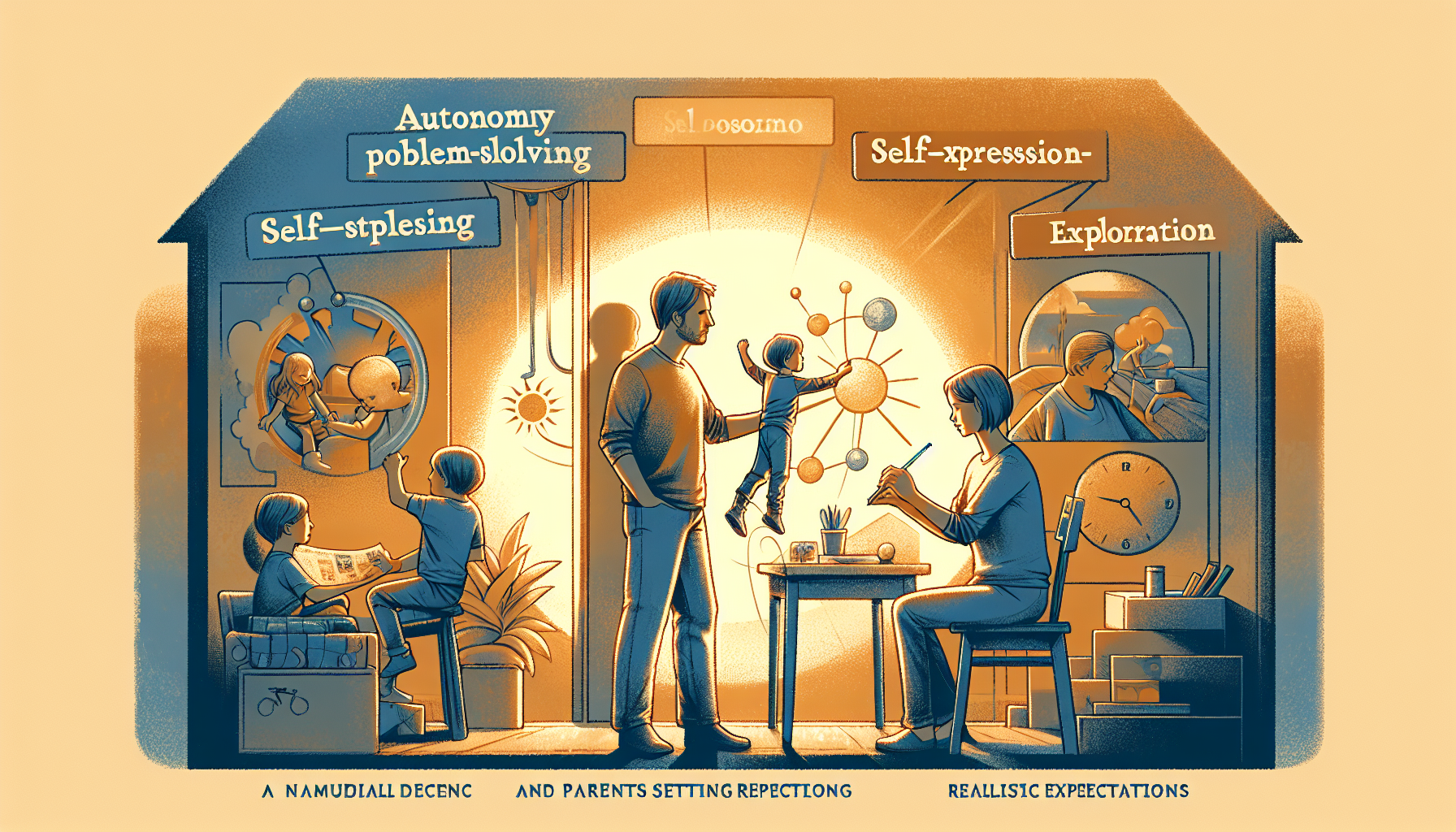Encouraging Children to Be Self-Reliant: A Guide for Parents
As parents, one of our most important tasks is to prepare our children for the world, equipping them with the tools they need to navigate life independently. Encouraging self-reliance in children is crucial, not just for their development but also for their long-term happiness and success. This article explores the significance of fostering independence in children and offers practical parenting strategies to support this journey.
Main Points
Children who learn to rely on themselves are more likely to develop a strong sense of autonomy, self-esteem, and problem-solving skills. According to cognitive-behavioral therapy (CBT) principles, addressing psychological needs such as safety, autonomy, and self-expression is essential for healthy mental development.
- Autonomy and Decision-Making: Giving children the chance to make decisions helps them feel competent and in control. Studies show that when children are encouraged to make choices, they develop better decision-making skills and confidence.
- Problem-Solving Skills: Encouraging children to solve problems on their own fosters critical thinking. Research indicates that children who are allowed to tackle challenges independently develop resilience and adaptability.
- Building Self-Esteem: When children accomplish tasks independently, their self-esteem grows. They learn to trust their abilities and are less likely to be affected by peer pressure.
Incorporating these principles into daily parenting can significantly enhance a child’s ability to become self-reliant. For more insights into fostering independence, check out this article on fostering independence in children.
Practical Recommendations
Here are some simple yet effective strategies to encourage self-reliance in your children:
- Encourage Exploration: Allow your children to explore new activities and interests. This helps them discover their strengths and passions.
- Provide Choices: Offer your children choices in everyday situations, such as what clothes to wear or what book to read. This fosters decision-making skills.
- Set Realistic Expectations: Give age-appropriate responsibilities, such as setting the table or organizing their room. This teaches accountability and time management.
- Be Supportive but Not Overbearing: Offer guidance when necessary, but allow children to tackle challenges independently. This builds resilience.
- Encourage Self-Expression: Create an environment where children feel safe to express their thoughts and emotions. This helps them develop a strong sense of identity.
For more detailed strategies, visit this article on parenting strategies for independence.
Conclusion
Fostering self-reliance in children is an essential aspect of modern parenting. By encouraging autonomy, problem-solving, and self-expression, parents can help their children grow into confident and capable individuals. Implementing these parenting strategies not only enhances the parent-child relationship but also equips children with the skills they need to thrive in the future.
Remember, the journey to independence is a gradual process that requires patience and understanding. By supporting your child’s growth, you are setting the foundation for a lifetime of success and fulfillment.

